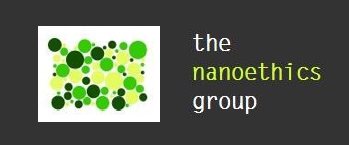Home > Press > Human Enhancement and Societal Challenges Featured in NanoEthics Journal: New collection of papers helps to navigate complex maze of issues
 |
Abstract:
The Nanoethics Group today announced publishing a symposium of papers focusing on ethical and societal problems arising from human enhancement applications of emerging technologies, especially nanotechnology. The symposium appears in the December 2008 issue of NanoEthics journal published by Springer, one of the world's largest publisher in science, technology, and medicine.
Human Enhancement and Societal Challenges Featured in NanoEthics Journal: New collection of papers helps to navigate complex maze of issues
SAN LUIS OBISPO, CA | Posted on December 14th, 2008"Several prominent scientists and ethicists recently declared their support for the use of pharmaceuticals—provided they are safe—to enhance cognitive functions of healthy individuals," recounted Dr. Patrick Lin, director of The Nanoethics Group and visiting assistant professor at California Polytechnic State University, San Luis Obispo. "Not only is this position highly controversial, even if it is ultimately defensible, but it also doesn't consider larger societal consequences, such as competitive fairness and access. In our NanoEthics journal symposium, we help to sort through the many strands of intertwined issues to more fully consider the ethics of human enhancement."
The symposium is comprised of the following six papers:
1."Untangling the Debate: The Ethics of Human Enhancement" by Patrick Lin (Cal Poly, SLO; Dartmouth) and Fritz Allhoff (Western Michigan Univ.; CAPPE);
2."Nanotechnology: Considering the Complex Ethical, Legal, and Societal Issues with the Parameters of Human Performance" by Linda MacDonald Glenn (Alden March Bioethics Institute/Albany Medical Center; University of Vermont College of Nursing) and Jeanann S. Boyce (Montgomery College);
3."Enhancing Justice?" by Tamara Garcia and Ronald Sandler (both of Northeastern University);
4."Nanotechnology, Enhancement, and Human Nature" by Nicole Hassoun (Carnegie Mellon University);
5."The Opposite of Human Enhancement: Nanotechnology and the Blind Chicken Problem" by Paul Thompson (Michigan State University); and
6."Ethics, Speculation, and Values" by Rebecca Roache (Oxford University)
The Nanoethics Group is also involved in organizing a conference on this important subject, to be held at Western Michigan University (WMU) on March 27-29, 2009. More information will be available at www.nanoethics.org.
The journal symposium and upcoming conference are funded by collaborative US National Science Foundation grants awarded to WMU and Dartmouth College, award numbers 0620694 and 0621021. For access to the first, introductory paper, please visit www.nanoethics.org/paper_enhance.html. For subscription access to the other papers, please visit www.springer.com/philosophy/ethics/journal/11569.
####
About The Nanoethics Group
Based at California Polytechnic State University (Cal Poly, San Luis Obispo), The Nanoethics Group is a non-partisan research organization formed to study nanotechnology’s impact on society and related ethical issues. As professional ethicists, we help to identify and evaluate possible harms and conflicts as well as to bring balance and common sense to the debate. Our mission is to educate and advise both organizations and the broader public on these issues as a foundation to guide policy and responsible research.
For more information, please click here
Contacts:
Patrick Lin, Ph.D.
Research Director
The Nanoethics Group
patrick at nanoethics.org
+1.805.570.5651
Copyright © The Nanoethics Group
If you have a comment, please Contact us.Issuers of news releases, not 7th Wave, Inc. or Nanotechnology Now, are solely responsible for the accuracy of the content.
| Related News Press |
News and information
![]() Simulating magnetization in a Heisenberg quantum spin chain April 5th, 2024
Simulating magnetization in a Heisenberg quantum spin chain April 5th, 2024
![]() NRL charters Navy’s quantum inertial navigation path to reduce drift April 5th, 2024
NRL charters Navy’s quantum inertial navigation path to reduce drift April 5th, 2024
![]() Discovery points path to flash-like memory for storing qubits: Rice find could hasten development of nonvolatile quantum memory April 5th, 2024
Discovery points path to flash-like memory for storing qubits: Rice find could hasten development of nonvolatile quantum memory April 5th, 2024
Ethics
![]() Artificial Intelligence Centered Cancer Nanomedicine: Diagnostics, Therapeutics and Bioethics June 3rd, 2022
Artificial Intelligence Centered Cancer Nanomedicine: Diagnostics, Therapeutics and Bioethics June 3rd, 2022
![]() Iran to hold intl. school on application of nanomaterials in medicine September 20th, 2016
Iran to hold intl. school on application of nanomaterials in medicine September 20th, 2016
![]() Synthetic biology needs robust safety mechanisms before real world application: Ethics and technology hold the key to the success of synthetic biology September 17th, 2015
Synthetic biology needs robust safety mechanisms before real world application: Ethics and technology hold the key to the success of synthetic biology September 17th, 2015
![]() March 2016; 6th Int'l Conference on Nanostructures in Iran July 29th, 2015
March 2016; 6th Int'l Conference on Nanostructures in Iran July 29th, 2015
Announcements
![]() NRL charters Navy’s quantum inertial navigation path to reduce drift April 5th, 2024
NRL charters Navy’s quantum inertial navigation path to reduce drift April 5th, 2024
![]() Discovery points path to flash-like memory for storing qubits: Rice find could hasten development of nonvolatile quantum memory April 5th, 2024
Discovery points path to flash-like memory for storing qubits: Rice find could hasten development of nonvolatile quantum memory April 5th, 2024
Interviews/Book Reviews/Essays/Reports/Podcasts/Journals/White papers/Posters
![]() Simulating magnetization in a Heisenberg quantum spin chain April 5th, 2024
Simulating magnetization in a Heisenberg quantum spin chain April 5th, 2024
![]() Discovery points path to flash-like memory for storing qubits: Rice find could hasten development of nonvolatile quantum memory April 5th, 2024
Discovery points path to flash-like memory for storing qubits: Rice find could hasten development of nonvolatile quantum memory April 5th, 2024
|
|
||
|
|
||
| The latest news from around the world, FREE | ||
|
|
||
|
|
||
| Premium Products | ||
|
|
||
|
Only the news you want to read!
Learn More |
||
|
|
||
|
Full-service, expert consulting
Learn More |
||
|
|
||








